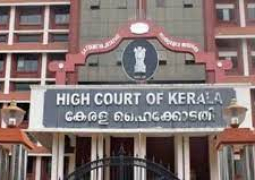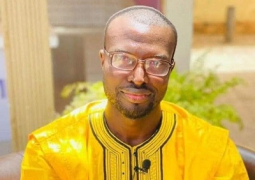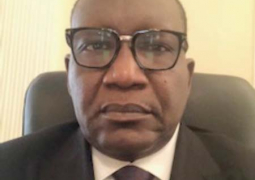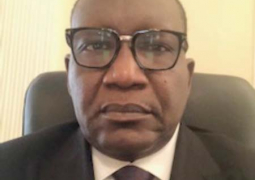The project, developed by GALGA and the National Youth Council of The Gambia and other partners, seeks to address the negative livelihood challenges that vulnerable women and youth encounter as a result of operating the Senegambia Bridge. It is funded under the United Nations Fund for Population Affairs Gambia office.
The team visited Mansakonko Hospitality Center to be housed at the Mansakonko Area Council Conference center and a One-Stop-Shop Entrepreneurship Hub in Farafenni.
These are two of the project components. GALGA is also the Chairman and Secretariat of the Steering Committee of this project. Kerewan and Mansakonko Local Government Areas (LGAs) are the beneficiaries of the project component.
The site seeing provided the team the opportunity to gather first-hand information about the projects, in preparation for the commencement of their implementation.
The project is expected to strengthen the economic and social rights of vulnerable groups around the Senegambia Bridge whose livelihoods have been negatively impacted by the construction of the Bridge.
The overall impact of the project will be building the resilience of the targeted beneficiaries to vulnerabilities and accelerate progress on achieving multiple SDGs including SDGs 1, 2, 3, 4, 5, 6, 8, 10, 11, 12, 13 and 16..
It will also focus on strengthening local governance structures to enhance participation, ownership and sustainability of development and restoring livelihoods and enhancing self-reliance mechanisms. It is equally expected to enhance opportunities for women and youth to diversify their income generation and improve their household, health and nutrition status.
Read Other Articles In Headlines





